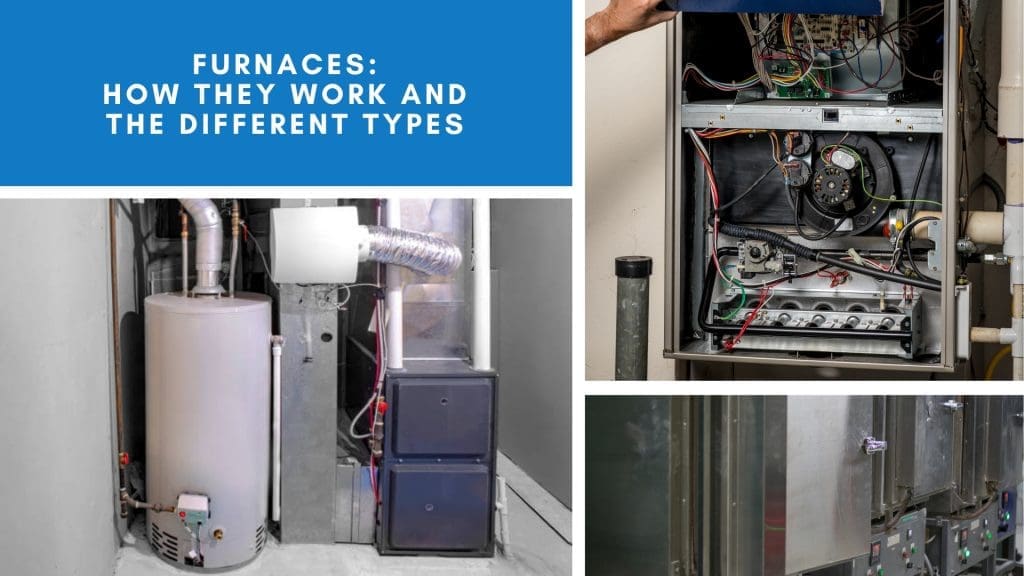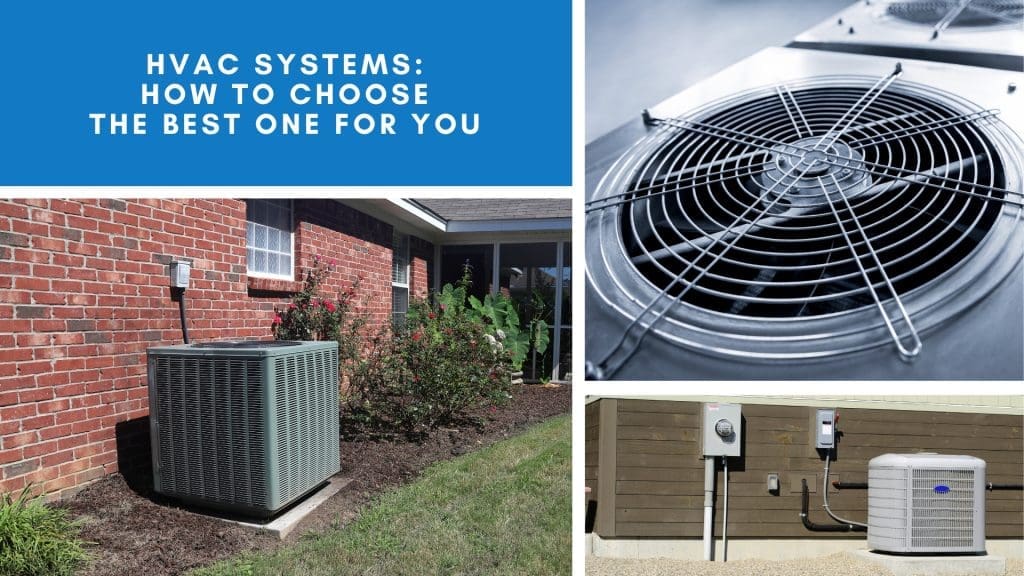Living in sunny California, we often overlook the importance of our HVAC boilers. Yet, when the temperature drops, these unsung heroes keep our homes and businesses warm and comfortable.
Understanding your boiler system is crucial. It’s not just about knowing when to call in a professional, but also about recognizing the signs of potential issues before they escalate.
In this article, we’ll delve into the essential maintenance tips for HVAC boilers. We’ll explore the key components of a boiler heating system, discuss regular inspection routines, and provide actionable advice for maintaining your boiler unit.
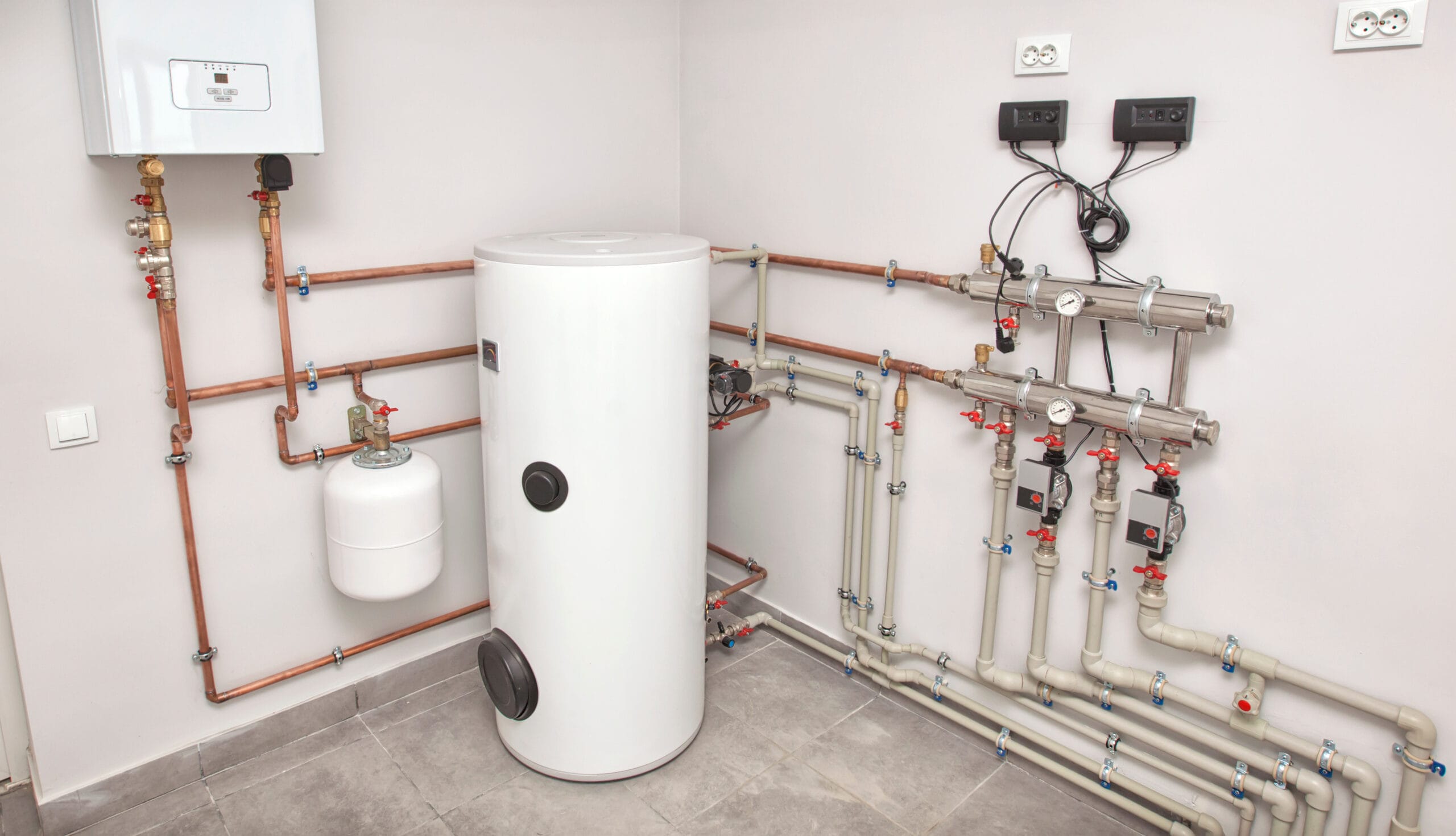
Whether you’re a small business owner, a work-from-home professional, or a busy stay-at-home mom, this guide is designed to help you navigate the complexities of boiler maintenance.
Remember, a well-maintained boiler not only ensures a warm and cozy environment but also contributes to energy efficiency and cost savings.
Understanding Your HVAC Boiler System
HVAC boilers are central to our homes’ heating, providing reliable warmth during cooler days. They’re more complex than they seem, with various components working together.
Understanding these components helps in troubleshooting potential issues more effectively. This knowledge empowers homeowners to maintain their systems properly and know when expert intervention is needed.
The system’s efficiency impacts not just warmth but your energy bills too. Knowing your system well ensures optimal performance and long-term cost savings.
Key Components of a Boiler Heating System
Knowing the key components of your boiler heating system enhances your understanding of its operation. These components work in harmony to ensure your home stays warm and cozy.
First, there’s the burner, where the fuel mixes with air for combustion. The heat exchanger is next, transferring heat to the water without mixing with it.
Additionally, the controls regulate temperature and system operation. These include the thermostat, which maintains your desired warmth. The venting system ensures gases exit safely, preventing harmful accumulations.
Here’s a breakdown of these key components:
- Burner: Combines fuel and air for combustion.
- Heat Exchanger: Transfers heat to the water.
- Controls: Include thermostats and safety devices.
- Vents: Allow exhaust gases to exit safely.
Understanding these parts ensures better maintenance, keeps your system efficient, and extends the boiler’s lifespan.
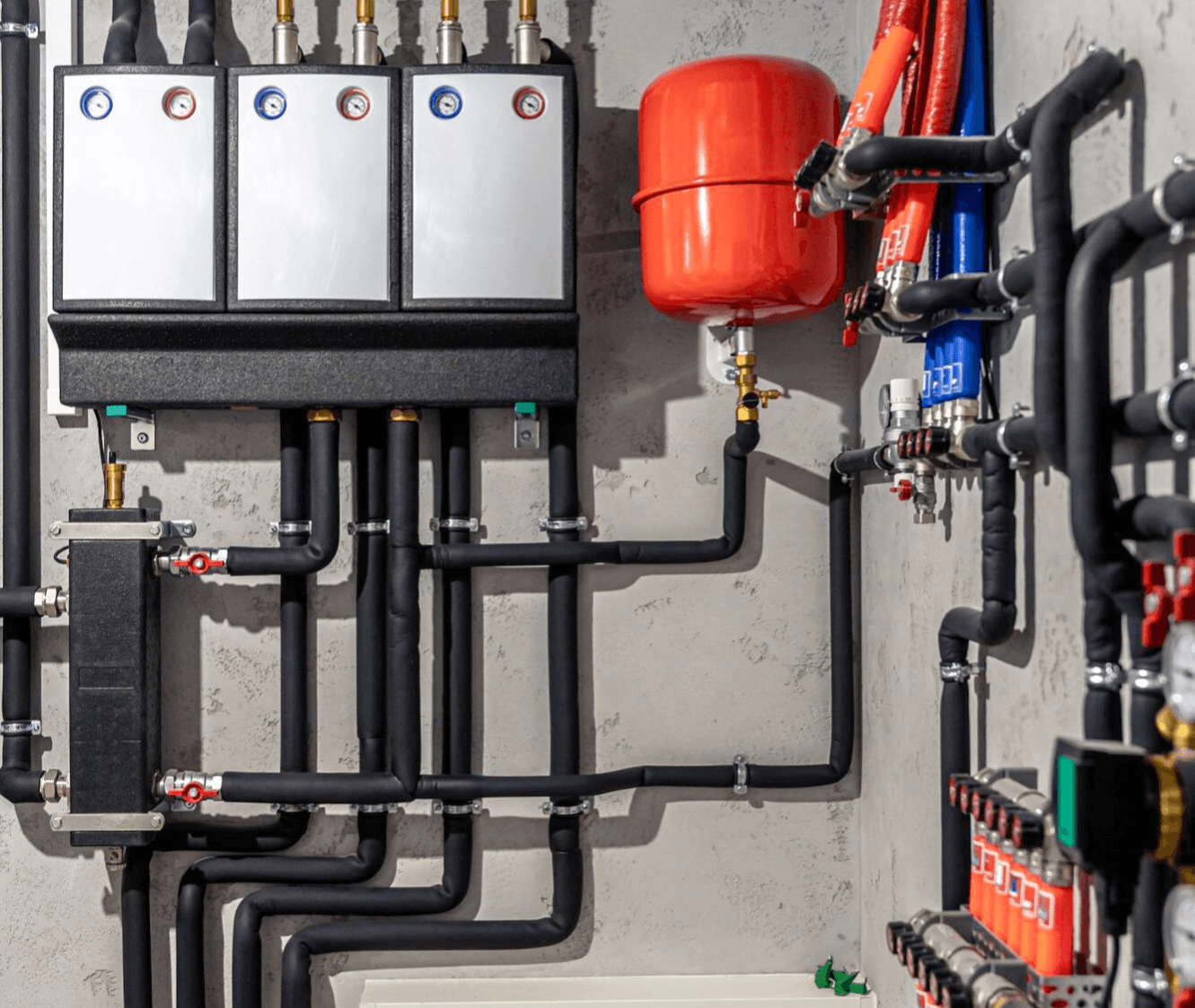
Regular Inspection and Maintenance
Regular inspection of your HVAC boiler is crucial for maintaining its efficiency. Look for any visible signs of wear or corrosion. This proactive approach can prevent costly repairs down the line.
Listening to your boiler’s performance is also important. Unusual sounds can indicate potential issues that need addressing. Keeping a maintenance log helps track changes or recurring problems.
Dust and debris can impact efficiency. Ensure the area around the boiler is clean to promote optimal operation. Regular checks ensure your system runs smoothly and safely, providing peace of mind.
Checking Water Levels and Pressure
Maintaining proper water levels in your boiler is essential for safe operation. Low water levels can cause overheating and damage. Always monitor the water level gauge to ensure it is at the recommended level.
Consistent pressure is key to efficiency. Low pressure can lead to poor heating. Use the pressure gauge to check and adjust as necessary, referencing the manufacturer’s guide for specifications.
If you notice frequent pressure drops, it might signify a leak or another issue needing professional attention. Addressing it early prevents more significant problems.
Thermostat Testing and Accuracy
A well-functioning thermostat is vital for efficient heating. Start by setting the temperature and waiting for the system to respond accordingly.
Inaccuracy can lead to discomfort and higher bills. Test its accuracy by comparing the set temperature with the actual room temperature. Use separate room thermostats if needed.
If you notice discrepancies, recalibrating or replacing the thermostat may be required. This small adjustment ensures greater comfort and efficiency, saving energy and money.
Air Filter Maintenance
Air filter maintenance is crucial for air quality and system performance. Dirty filters impede airflow, making the boiler work harder and increasing energy use.
Check filters monthly, especially during peak heating seasons. Clean reusable filters or replace disposable ones regularly. Follow manufacturer guidelines for best results.
A clean filter ensures a healthier environment by trapping dust and allergens. It improves system efficiency, reducing strain and prolonging the boiler’s lifespan.
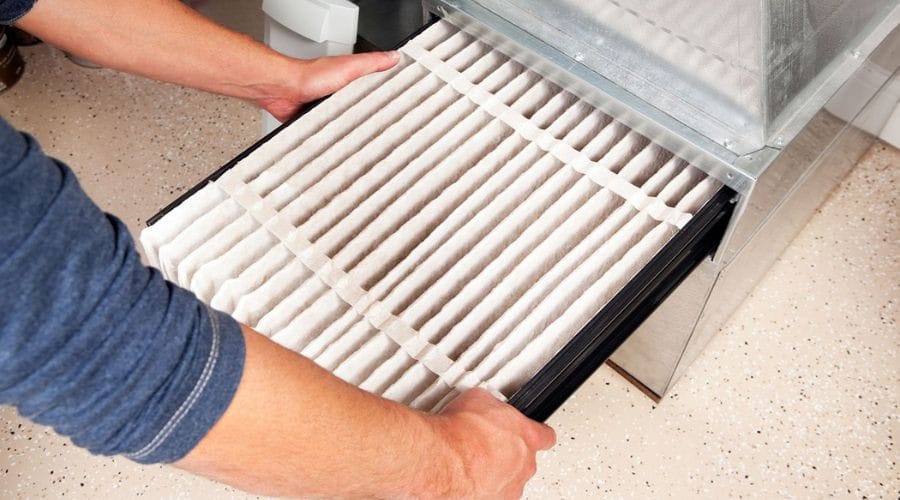
Professional Inspections and When to Call Them
Even with regular home maintenance, professional inspections are vital. Experts can spot issues that aren’t obvious to untrained eyes.
Schedule inspections before the heating season begins. This timing ensures your system is efficient when you need it most.
Trustworthy professionals have the right tools and experience. They provide peace of mind, ensuring your boiler is safe and efficient.
Don’t hesitate to call for a professional if you notice strange noises or inconsistent performance. Prompt attention can prevent minor issues from becoming major repairs.
Recognizing Signs of Boiler Distress
Your boiler can show signs of distress through strange noises. Listen for banging, whistling, or gurgling sounds which indicate trouble.
Inconsistent heating or frequent shut-offs are also warning signs. These issues suggest underlying problems that need immediate attention.
If your energy bills spike unexpectedly, your boiler might be inefficient. Contact a professional to diagnose and resolve these issues promptly.
The Importance of Annual Professional Check-Ups
Annual check-ups by a professional are crucial for maintaining efficiency. They can identify and fix minor issues before they escalate.
These inspections ensure all components function as intended. This thorough approach extends your boiler’s lifespan.
While DIY maintenance helps, annual check-ups ensure thorough assessment and repair. Investing in professional expertise pays off in long-term savings and comfort.
DIY Maintenance Tips
Taking care of your boiler system at home can be straightforward. Simple tasks can improve its efficiency and durability.
Regularly clean around the boiler to prevent dust buildup. This small step helps maintain system health.
Monitor your boiler system for visible changes. Catching issues early can save money on costly repairs.
Approach DIY tasks with caution and ensure safety. If in doubt, consult a professional.
Bleeding Radiators and Checking for Leaks
Bleed your radiators to release trapped air. This step ensures even heat distribution and improves efficiency.
Use a radiator key to open the valve slightly. Close it once water flows steadily to complete the task.
Inspect for leaks around pipes and radiators. Tighten connections or seek professional help if you notice any.
Maintaining the Pressure Relief Valve and Expansion Tank
Check the pressure relief valve regularly. It releases pressure build-up, keeping your system safe.
Inspect the expansion tank for proper water and air levels. This balance prevents pressure surges in the system.
If you notice any issues, consult your boiler’s manual or contact a professional. Safety is always a priority when handling boiler components.
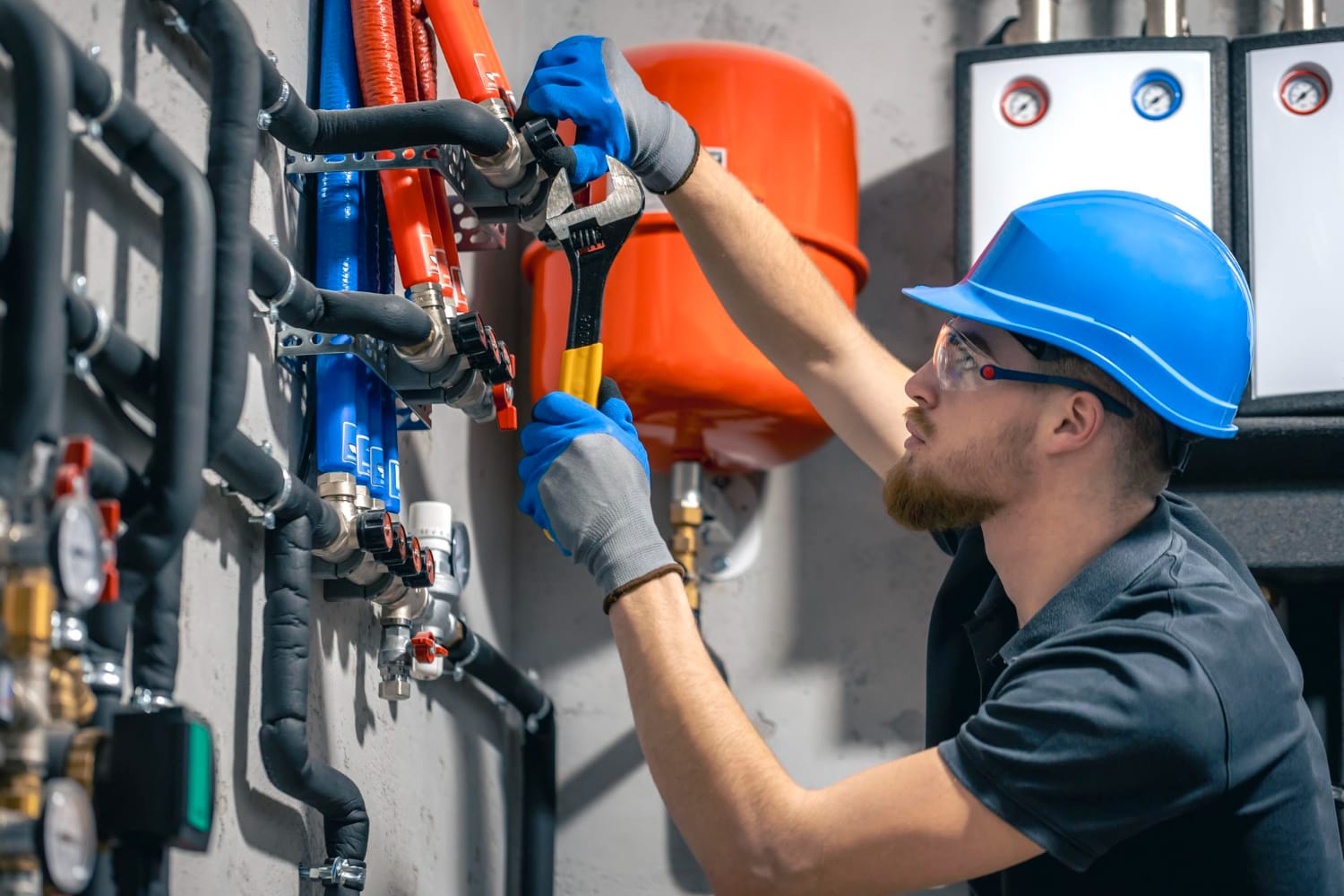
Upgrading and Energy Efficiency
Upgrading your boiler can significantly impact energy savings. Newer models often boast improved efficiency and eco-friendliness.
Considering an upgrade during scheduled maintenance checks is wise. It ensures your system remains optimal throughout its lifespan.
A modern, efficient boiler reduces utility bills and contributes positively to the environment. Keeping your system updated is an investment in sustainability.
Incentives for California Homeowners
California homeowners have access to various incentives for upgrading boilers. These programs can offset the costs of adopting eco-friendly solutions.
State and local programs often offer financial benefits for such upgrades. Check local resources to learn about available incentives.
Upgrading under these programs not only saves money but also boosts home comfort. It’s a win-win for homeowners.
Choosing an Energy-Efficient Boiler System
When selecting a new boiler, focus on its energy efficiency. Look for systems with high ratings and certifications.
Energy-efficient boilers consume less fuel, reducing environmental impact. They also tend to have lower operational costs over time.
Consult with a professional to find the ideal boiler for your home. A tailored choice ensures maximum efficiency and comfort.
Safety and Best Practices
Ensuring safety around your boiler is paramount. Always adhere to manufacturer guidelines for operation and maintenance.
Routine checks can prevent potential hazards. Being proactive reduces risks and maintains a safe environment.
Stay informed about best practices in boiler maintenance. This knowledge aids in better decision-making and system care.
Importance of Carbon Monoxide Detectors
Carbon monoxide is a silent threat in homes with boilers. Installing detectors is a simple but vital safety measure.
These detectors alert homeowners to dangerous leaks. Early warnings can prevent serious health issues or worse.
Regularly test and replace carbon monoxide detector batteries. Ensuring they work can save lives, providing peace of mind.
Keeping the Boiler Area Safe
Clear the area around your boiler regularly. Avoid storing flammable items nearby to prevent fire hazards.
Good ventilation is crucial for boiler efficiency and safety. Ensure vents are unobstructed for proper air circulation.
Incorporate a schedule for checking the boiler area. Keeping it safe ensures efficient and reliable operation year-round.
Conclusion: The Value of Boiler Maintenance with Essential Maintenance Tips for HVAC Boilers
Regular boiler maintenance delivers many benefits. It enhances system efficiency and reduces the chances of unexpected breakdowns.
Well-maintained boilers have a longer lifespan. This means fewer costly repairs and replacements over time.
Investing in maintenance boosts safety and comfort at home. It’s a worthwhile commitment for every California homeowner.

